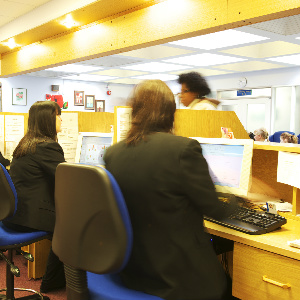GP receptionists ‘need training to recognise stroke symptoms’

Nearly a third of receptionists at GP surgeries failed to direct patients with symptoms of stroke for immediate help from a GP or to emergency services, a simulation study at 52 general practices has revealed.
The research, from Oxford University, has prompted calls for receptionists to be properly trained in recognising the symptoms of stroke, after finding only 14%of the receptionists in the study had received formal training.
Each practice in the study received 10 calls from trained ‘medical role’ actors mimicking between one and three symptoms of acute stroke.
Overall, 69% of the calls were transferred immediately – 88% of the time to emergency services.
Receptionists performed well when patients presented with three ‘FAST’ – Face Arm Speech Time – symptoms. However, they were less likely to refer people immediately if they had fewer FAST symptoms, or with symptoms related to posterior circulation stroke such as vomiting, visual disturbance or vertigo.
Lead researcher Dr James Sheppard, a Medical Research Council fellow at Oxford University’s Primary Care Health Sciences department, said: ‘Patients suffering from stroke require urgent care in hospital. A delay of just a few hours, caused by calling the GP surgery instead of 999, could have a significant impact on patient outcomes.
‘Unlike call handlers answering 999 calls, few GP receptionists are trained to recognise the symptoms of stroke and triage patients appropriately. We were therefore surprised that such a high number of simulated calls were correctly referred for immediate care. That said, simulated calls containing lesser known symptoms of stroke were often dealt with incorrectly, suggesting that some formal training of receptionists would be valuable.’
Br J Gen Pr 2015; available online 29 June
Visit Pulse Reference for details on 140 symptoms, including easily searchable symptoms and categories, offering you a free platform to check symptoms and receive potential diagnoses during consultations.









